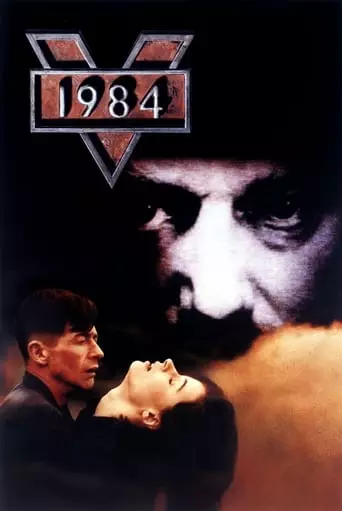
Nineteen Eighty-Four (1984) Watch Online Free
George Orwell’s novel of a totalitarian future society in which a man whose daily work is rewriting history tries to rebel by falling in love.
Nineteen Eighty-Four is a 1984 film adaptation of George Orwell’s seminal 1949 novel, directed by Michael Radford and starring John Hurt as Winston Smith and Richard Burton as O’Brien. Set in a dystopian future, the narrative unfolds in Oceania, a totalitarian superstate led by the omnipresent and omnipotent Party, personified by the figure of Big Brother.
Winston Smith, a low-ranking member of the Outer Party, resides in Airstrip One (formerly known as Great Britain). He works at the Ministry of Truth, where his job is to alter historical records, ensuring they align with the Party’s ever-changing narrative. Despite the Party’s pervasive surveillance and the oppressive societal structure, Winston harbors rebellious thoughts and a desire for personal freedom.
His clandestine affair with Julia, a fellow Party member, represents his attempt to reclaim individual autonomy and experience genuine human connection. Their secret meetings and shared disdain for the Party’s doctrines offer a brief respite from the oppressive regime. However, their rebellion is short-lived; they are betrayed, arrested, and subjected to severe re-education under the supervision of O’Brien, a high-ranking Party official whom Winston had believed to be an ally.
Through intense psychological and physical torture, Winston is coerced into betraying Julia and ultimately succumbs to the Party’s ideology, culminating in his acceptance of Big Brother’s absolute authority. The film concludes with Winston’s complete subjugation, highlighting the terrifying extent of totalitarian control.
Upon its release, Nineteen Eighty-Four received critical acclaim for its faithful adaptation of Orwell’s novel and the compelling performances of its cast. The film’s stark portrayal of a dystopian society resonated with audiences, prompting discussions about surveillance, freedom, and the role of government in personal lives. Its impact extended beyond cinema, influencing political discourse and serving as a cautionary tale about the potential for authoritarianism.
The film’s relevance persists, often cited in discussions about privacy rights, government surveillance, and the manipulation of information. Its enduring legacy underscores the importance of safeguarding individual freedoms and the dangers of complacency in the face of oppressive power.
After watching Nineteen Eighty-Four, you may experience a profound sense of unease and introspection. The film’s unflinching portrayal of a society stripped of freedom and truth can evoke feelings of discomfort and reflection on the fragility of individual rights. The bleak conclusion may leave you contemplating the implications of unchecked governmental power and the importance of safeguarding personal freedoms. Overall, the film offers a thought-provoking and emotionally resonant experience that lingers long after the credits roll.
